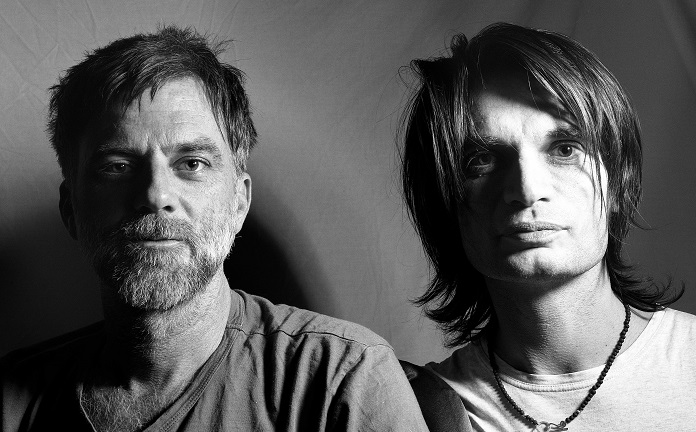MUBI film review: Junun
Review Overview
Visuals
8Sounds
9Impact
10Simon Kinnear | On 09, Oct 2015
Director: Paul Thomas Anderson
Cast: Jonny Greenwood, Shye Ben Tzur; Rajasthan Express
Watch Junun online in the UK: MUBI
Surprise! Paul Thomas Anderson, who often broods for years between projects, has released a documentary within a year of his last feature, Inherent Vice. Better still, thanks to a trail-blazing deal with VOD platform MUBI, the film is available to stream now, almost immediately after its world premiere at the New York Film Festival on Thursday.
There are even bigger surprises when you actually watch Junun. At a brisk 54 minutes, it charts the making of the album of the same name, a unique collaboration between Radiohead guitarist (and PTA’s go to guy for soundtracks) Jonny Greenwood, Israeli composer Shye Ben Tzur and the Indian band, Rajasthan Express.
Chances are, though, that you’ve never seen a ‘making of’ doc quite like this. Devoid of all but the most cursory context – there’s a refreshing absence of nonsensical PR soundbites about “shaping the future of music” – PTA simply positions the camera as a privileged eavesdropper on the creation of something beautiful.
The result is off-the-cuff, utterly relaxed filmmaking: the camera occasionally loses focus, a cameraman’s shadow appears, PTA whisks the camera away mid-shot to find a new vantage point. The ‘as it happens’ vibe is matched by the actual content. The electricity fails? Fine: the musicians can chill for a moment. A harmonium breaks? Let’s follow the musician into town to get it fixed.
It’s the perfect chaser to the languid Inherent Vice and shows a filmmaker totally at ease in his abilities – still experimenting, but not in an ostentatious way. Only occasionally does the technique take flight: literally so, as drone shots hurl out of the windows into the beautiful surroundings of Jodhpur, where the musicians have found an idyllic fort in which to work.
Mostly, though, it stands and falls on the music and PTA – whose films have always shown a healthy respect for musicality – is happy to observe. The film is about creating the emotional space for the songs to work their magic, just as the blissful environment provides the perfect working space (or should do, but for the pigeons; there’s a lovely bit of slapstick as producer Nigel Godrich has to shoo away a bird while the band are recording).
The music is as warm and snuggly as a hug in a blanket: a layered fusion of jangling guitars, the beat of traditional Indian percussion and the euphoric bravado of brass. Even when Greenwood mixes electronica into the collage, it still sounds nothing like Radiohead, or even the composer’s previous work with PTA.
The result highlights the impact of collaboration and the unique shape that comes with each project, be it music or film. There’s none of the patronising nonsense you’d expect when a famous Westerner travels abroad; if anything, Greenwood disappears into the crowd. All are equal, which is as it should be because on this evidence, all are equally talented and responsible for the results; crucially, the recurring image throughout the film (both in the musicians’ placement and the camera’s relation to them) is that of an unbroken circle.
Accordingly, PTA’s priority is to capture the connection between musicians, be it the conductor’s hand gestures or the glimmering eye contact between players to know when to shift tempo. The director tries to position his camera as another player; there’s an astonishing moment during the opening sequence where, after beguiling us with a 360-degree pan around the performance, we alight on the singers at the exact moment they open their mouths.
The project is East/West; modern/traditional; male/female… and the contrasts ebb and flow to create something scintillating. You want to applaud when each song finishes. Here’s hoping Anderson puts the band into his next narrative film, the way that Emir Kusturica used to do; they’d bring a tremendous, infectious energy to proceedings.
Meanwhile, history of sorts is being made; never before has an A-list director bypassed conventional distribution in favour of VOD’s immediacy. Anderson was astute to choose MUBI for such a one-off. This isn’t commercial fare and he’s not bound by the usual models. Indeed, the symmetry of an album-length run-time would dissipate were this bloated out to 90 minutes. Similarly, for a film about collaboration, the inclusive nature of the distribution model beckons us all in. Stream it, and we will watch.
Just one question: when can we buy the album?
Junun is available MUBI UK, as part of a £9.99 monthly subscription.

















